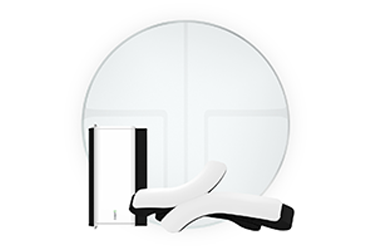Do you or someone you know drink a lot of alcohol over several hours either frequently or occasionally? No big deal, right? Actually, it’s is a bigger deal than you probably think. In 2018 nearly 27% of adults reported binge drinking and over 6.5% drank heavily the previous month.
What is considered binge drinking?
When most people think of binge drinking, they picture high school or university students partying. Although binge drinking is fairly common in the younger population, more than half of all binge drinking occurs over the age of 35, with a growing percent over age 65.
There are several ways to describe or define mild, moderate, or severe alcohol use. The CDC breaks down binge drinking by men and women, due to biological differences in how the body metabolizes alcohol.
Please note that these are estimates and vary by individual:
Severity | Men | Women |
Low-risk consumption per day | 2 or fewer drinks/day* | 1 or fewer drinks/day |
Moderate risk consumption per day | 3 to 4 drinks/day | 2 to 3 drinks/day |
Binge drinking | 5 or more drinks over about 2 hours on any occasion+ | 4 or more drinks over about 2 hours on any occasion |
“Heavy” binge drinking | Binging on 5 or more days per month | Binging on 5 or more days per month |
(* There are standard definitions for how much alcohol constitutes “a drink” for beer, liquor, or wine.
+ This is the number of drinks generally needed to achieve a 0.08 grams/dL blood alcohol concentration, which is widely used by states to define legal vs illegal blood levels to drive.)
What are the consequences of binge drinking on your heart?
In general, the consequences of binge drinking are roughly the same as for heavy daily drinkers. Heavy drinking can make you more likely to get serious health problems like liver disease, cancer, and peptic ulcers, among others. Regular or high alcohol use can hurt your heart and lead to diseases of the heart muscle, called cardiomyopathy. Repeated binge drinking can also cause permanent damage to heart cells, causing high blood pressure, heartbeat abnormalities, heart failure, heart attack, or stroke.
Drinking too much alcohol can raise the levels of some fats in the blood. These fats combined with high or even low cholesterol have been associated with fatty buildup in the artery walls. That, in turn, can increase the risk of heart attack and stroke. Heavy drinking can also prematurely age arteries over time. Plus, all the calories from drinking alcohol can lead to obesity and a higher risk of developing diabetes.
Strategies to keep the heart healthy
The good news is that many of the earlier effects of heavy or binge drinking can improve or even resolve once drinking stops or at least decreases.
1. Don’t drink alcohol at all, or try to limit your consumption. You can start by eliminating drinking during the week or refraining from excessive or binge drinking.
2. Dilute your alcoholic drinks with tap water or plain mineral water when you can.
3. Choose low alcohol or light alcoholic drink.
4. When you are thirsty, drink cold water instead of alcohol. Keep a jug of water on the table with your meals.
5. Seek regular primary healthcare and monitor your progress.
6. If you are unable to cut back on drinking, you may be suffering from a substance abuse problem and should seek out medical help.
Dr. Laurie Romig is a doctor of medicine who specializes in emergency medical services (EMS). She completed her residency program in 1987 at the University of Missouri, in emergency medicine. For ten years Dr. Romig served as medical director of EMS systems in Pinellas County, Florida. Dr. Romig is currently a member of the SubstanceAbuse.com medical writing team. There she hopes to help educate people on substance use disorders, and proper treatment protocols.




